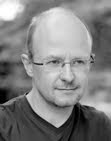Mindfulness
 I just finished this little booklet written by Ellen Langer, a Harvard professor in social psychology. It summarises a mountain of scientific research on the mental condition of mindfulness and its opposite, mindlessness.
I just finished this little booklet written by Ellen Langer, a Harvard professor in social psychology. It summarises a mountain of scientific research on the mental condition of mindfulness and its opposite, mindlessness.Mindfulness to Langer is not a state of mystic bliss in which one is connected with cosmic forces (or whatever "new age" lore one can come up with). She is a scientist after all. She starts by developing the notion of mindlessness as a mental state in which we rely on a host of pre-conceived categories and routines to lead our lives. We are mindless when we let our actions and thoughts be shaped by powerful cultural and contextual givens. We are mindful when we are able to transcend these notions and categories. Being mindful means being more in control of one's destiny, being more alert to opportunities to develop one's potential. Following her research, it also means to live longer and better, to be more healthy, productive and creative, and ultimately to be more human.
This book is of obvious interest to photographers. According to Langer, there are three key ways in which mindlessness manifests itself. Let's put them in the context of practicing the craft of photography:
- "too rigid reliance on categories": how often do we see photographers defining themselves as being a "landscape", a "social documentary", a "conceptual" etc. photographer? Some even see themselves as a "digital" or a "rangefinder" photographer. Putting oneself in such a box obviously limits oneself in one's creative development. But this kind of 'premature cognitive commitment' (as Langer calls it) continues to exert a powerful pull on people who are not interested in reinventing their craft but merely in emulating iconic examples.
- "automatic behaviour": after a while, we can drive a car without even thinking about it. It seems people are even able to solve mathematical puzzles without thinking about it. It is also possible to take pictures mindlessly. Large format photographers often tell that one of the main virtues of lugging a big camera around is the slowing down of the pacing and the focus it requires to successfully complete the whole routine of setting up and focusing the camera and exposing the film. This is obviously opposed to the snapshot approach, where you just push the button and hope everything will be allright. In my opinion, however, automatic behaviour doesn't have to be negative. I myself find it immensely enjoyable when I can wander the streets with a bare bones camera, fully able to immerse myself in a stream-of-consciousness-like mode of observing, composing and exposing. I would say this is also mindlessness, but of a higher order than the one that springs from intellectual laziness.
- "relying on a single perspective": people like to cling to a single set of rules. A picture needs to be sharp (and can't be blurry). For some it has to be blurry (and can't be sharp). Schools and academies are moulding students within the confines of a single style or approach. Books and magazines are telling us how seascapes and portraits need to be photographed, and what camera you can use for what purpose. Few people are fluent enough to mix very different approaches and aesthetics. Obviously that is what separates the artist from the emulator.
Ellen J. Langer, 1990, Mindfulness, Da Capo Press, 256pp.


1 Comments:
Wow, heavy stuff. We as photographer... There are a lot of different photographers outside. The one shot only weekend, the next one shot only to take the picture and given it other people to seeing and hopening that the other people say, wow great shot!
And photographer like you. Thinking about that what she doing with his work. Not working spontanic (like me) but working with her brain like a artist. Thats the real way to be a good photographer! Iam a rookie in photographie. I have start my "obsession" with the age of eight where i have my fathers EXA SLR in my hand first time. The i shot like a crazy man somethin g what come avant the lens :-)
So i can not call me a photographer!
By Marko, at 7:57 AM
Marko, at 7:57 AM
Post a Comment
<< Home